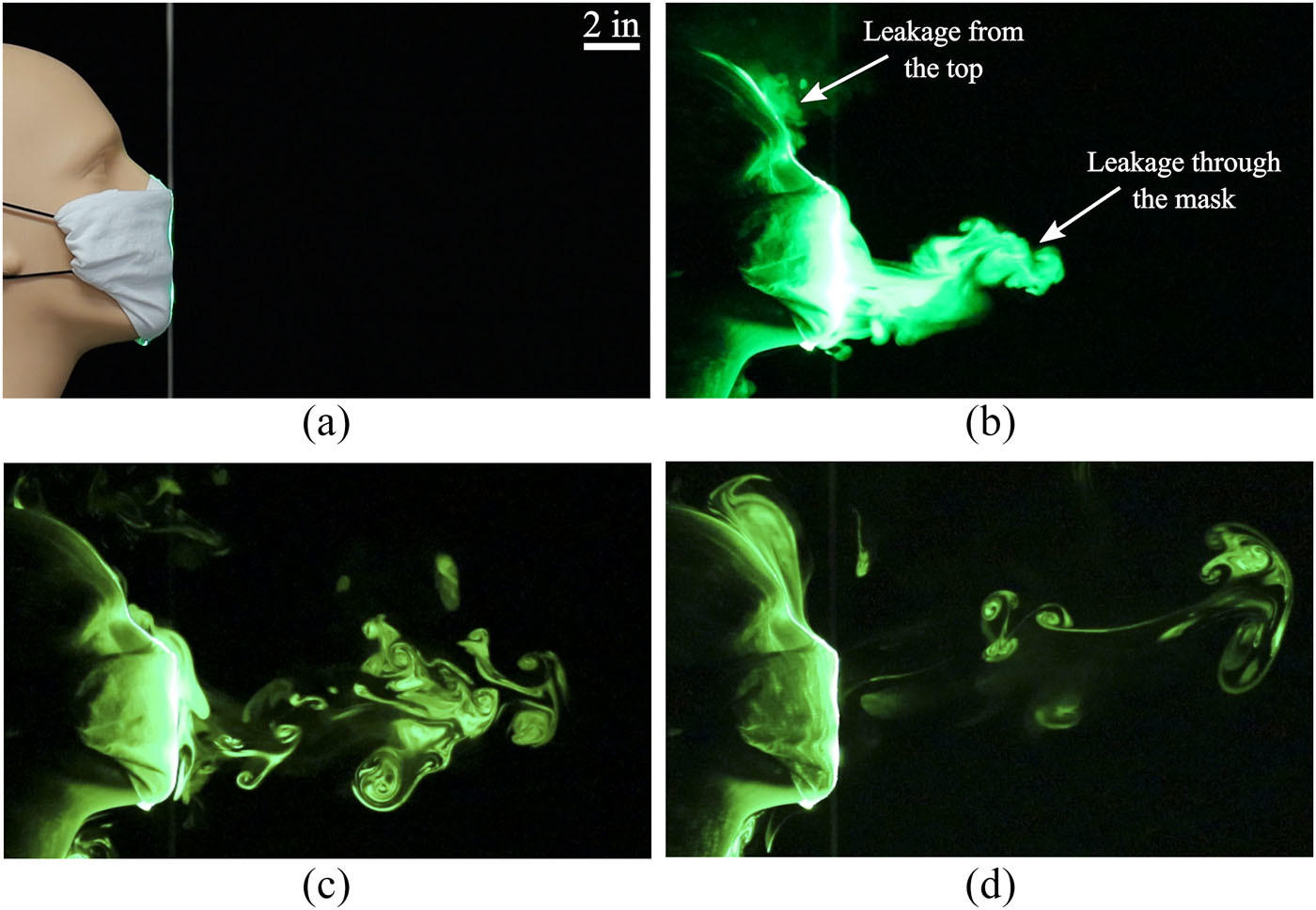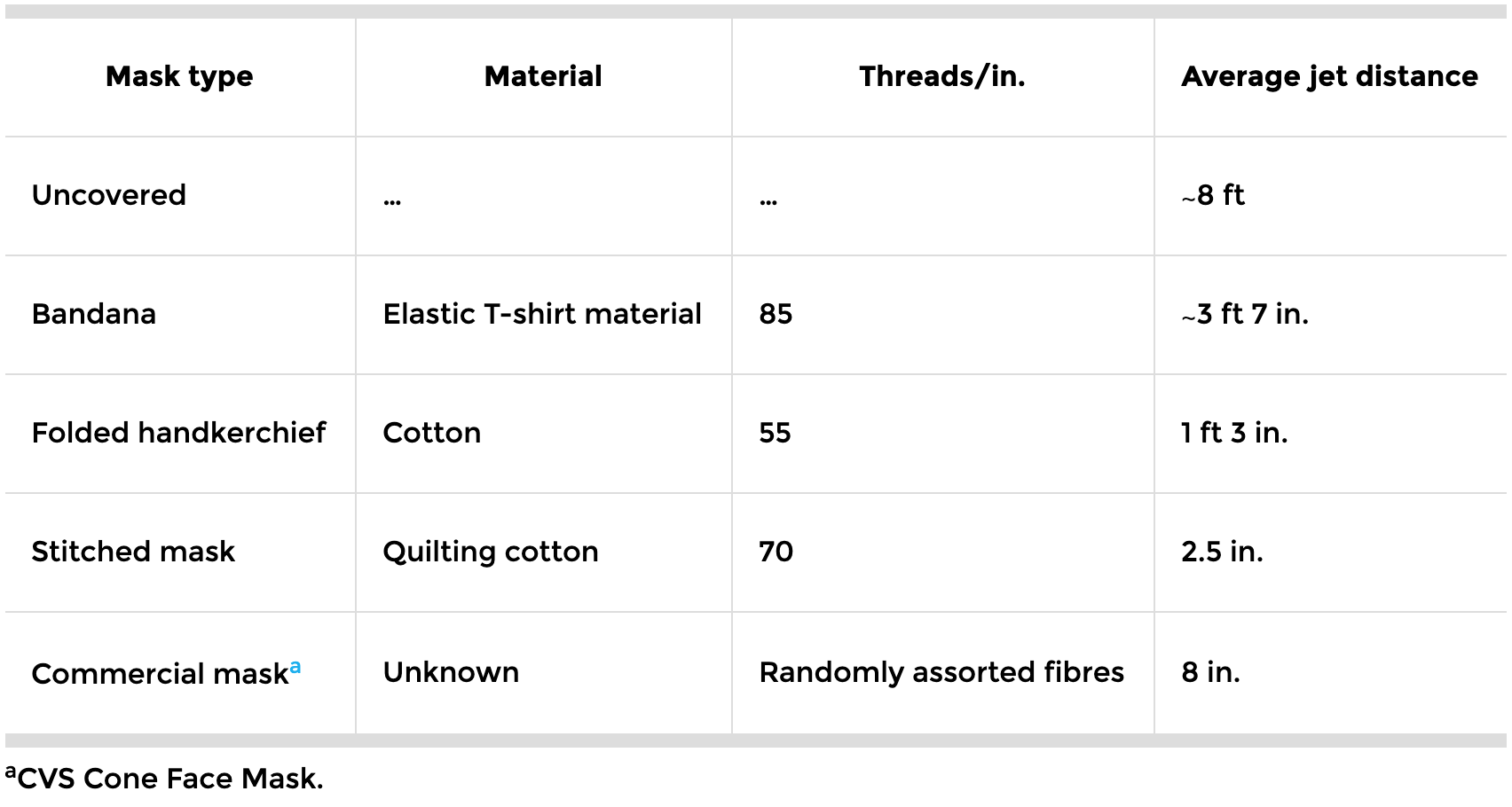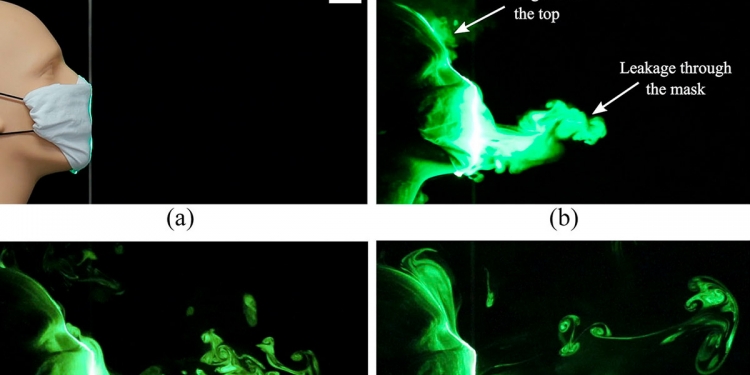Within a new study published in the Physics of Fluids journal, researchers have shared a visual representation of how effective cloth face masks can be in preventing the spread of COVID-19. While the the benefits of medical-grade face masks have been well documented, the study aimed to examine the performance on cloth-based coverings—which have become more and more common in light of recent events.
To create the visualisation, researchers used a hollow manikin head, a manual pump to push out a “sneeze”, a fog machine, and a laser sheet. While the findings varied for different materials used to create these masks, the study says that non-medical masks are “likely to be effective” to stop large respiratory droplets—one of the means of transmission for COVID-19.
“The visuals used in this study can help convey to the general public the rationale behind social-distancing guidelines and recommendations for using face masks. Promoting widespread awareness of effective preventative measures is crucial, given the high likelihood of a resurgence of COVID-19 infections in the fall and winter.”
Cough droplets travel up to twice the distance recommended for social distancing
Based on the simulation, heavy coughing without a mask on can result in droplets that travel up to 12 feet (3.65m), which is double the CDC’s recommended distance for social distancing. According to the study, this suggests that current social distancing guidelines should be updated to reflect a further distance.
While cloth face masks have been recommended to the public by the CDC, the materials used also affect how effective they can be as a protective measure. Three materials that are commonly used by the public were studied: a folded cotton handkerchief mask, a homemade two-layer cotton mask, and a cone-style mask.

In the image above, you can see that there is some “notable leakage” of droplets through the mask material when using a folded handkerchief mask, despite using the recommendation of the U.S. Surgeon General and the CDC. Still, the forward motion of the droplets (when expelled with a cough) was “impeded significantly”, with droplets travelling 1 feet and 3 inches. A bandana, when replacing the handkerchief, is even less effective—droplets travelled around 3 feet and 7 inches.

For the homemade cotton mask stitched with two layers, the forward motion of the expelled droplets was countered “almost completely”. While there is still some leakage, this mostly happens via the gap between the nose and the top edge of the face mask. Here, droplets only travelled 2.5 inches—the shortest distance of the masks tested—although there is still noticeable leakage via gaps around the mask.

And finally, a non-sterile cone-style mask that is usually available at pharmacies was tested. Cough droplets travelled to a distance of 8 inches, which is still lower than some of the other materials tested here. Again, there was leakage via gaps around the edge of the mask.

Despite flow leakage, non-medical face masks are still effective
Leakage is likely to happen with homemade face masks, while prolonged use may also degrade the effectiveness of said masks. However, non-medical masks, according to the study, are still “likely to be effective” in stopping respiratory droplets. The findings of the study basically show that the material and construction of homemade DIY face masks are significant factors in determining the level of protection offered, with the stitched cotton mask proving to be the most effective here.
Following that is the commercial cone-shaped mask, the folded handkerchief, and the folded bandana (in that order). It’s worth noting that the study examined the preventive role that face masks play in protecting others around you from respiratory droplets expelled when coughing. As such, it’s important to continue to practise safe habits as the world continues to fight against the coronavirus, and this new study only serves to highlight the vital part that face masks play—even non-medical ones.
To read the full study, click here.
[ SOURCE , IMAGE SOURCE ]








